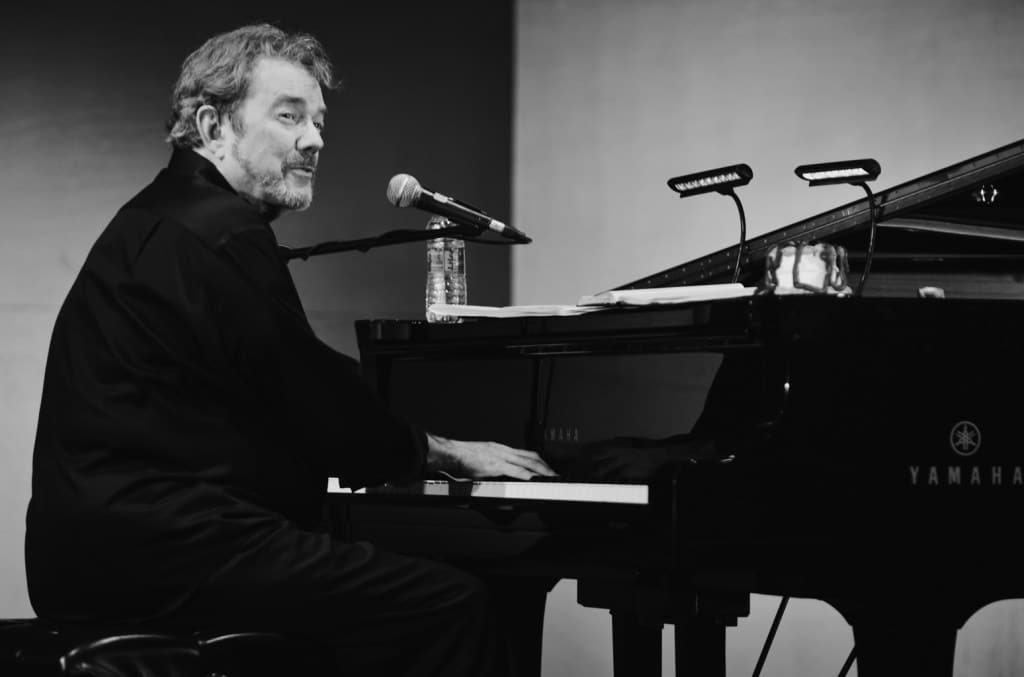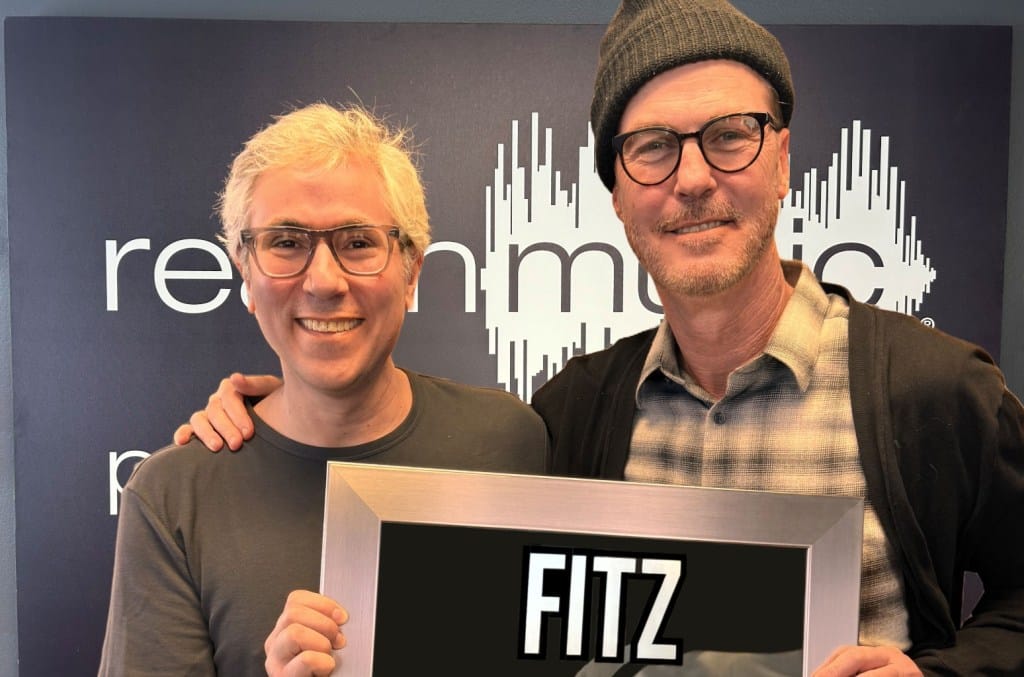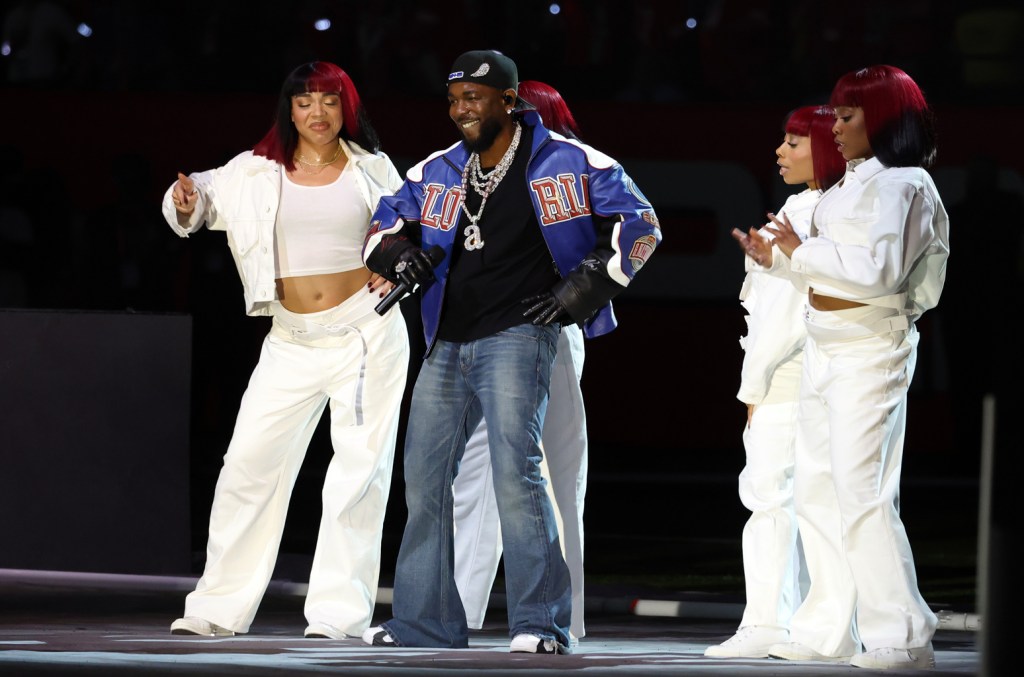Business
Page: 118
Welcome to the latest Executive Turntable, Billboard’s weekly compendium of promotions, hirings, exits and firings — and all things in between — across the music business. There’s a full slate of personnel news this week, so let’s hop to it.
Long-time listener, first-time employee Rich Baer joined SiriusXM Holdings as the satellite radio giant’s new executive vp, general counsel and secretary, effective March 3. Baer, who replaces the retiring Patrick Donnelly, boasts over 40 years of legal and business experience, most recently serving as chief legal officer at Airbnb before hanging it up in 2023. “I failed at retirement,” he joked this week. His extensive career also includes roles as chief administrative officer and chief legal officer at Liberty Media, evp and CLO at UnitedHealth Group, and general counsel at Qwest Communications. Baer began his legal career as a homicide prosecutor in Brooklyn before leading the litigation department at a Denver law firm. He’ll report to SiriusXM CEO Jennifer Witz, who highlighted Baer’s background in counseling complex companies and said “his ability to navigate legal issues and balance the needs of a business will enable him to succeed here.” Witz also honored outgoing GC Patrick Donnelly, recognizing his nearly 27 years of dedicated service.
Partisan Records hired Nick Wagner as the indie label’s new chief financial officer, effective late last year. Based in NYC and reporting to president and co-founder Tim Putnam, Wagner will oversee global financial operations, strategic planning, team management and growth initiatives at Partisan, home to PJ Harvey, IDLES and more. Wagner brings extensive experience from his previous role as global vp of business operations at Endeavor, where he improved operational efficiency across the company’s portfolio. He also served as vp of finance at Warner Music Group, focusing on artist-driven growth in digital and social media. Additionally, Wagner led the North America Digital Media division at Vice Media Group, managing finance and operations for brands like Noisey and Vice.com.
Trending on Billboard
Sony Music Nashville has promoted Mallory Michaels to vice president of radio marketing & promotion. In the new role, Michaels will develop and implement strategic and tactical national radio promotion plans for rostered artists at Sony Music Nashville, supporting both Columbia Nashville and RCA Nashville imprints. Michaels will report to senior vp, radio marketing & promotion Dennis Reese. Michaels joined SMN in 2018 and previously held roles at Warner Music Nashville and Red Bow Records. –Jessica Nicholson
Mike Faul / Courtesy Photo
Dynamic Talent International appointed veteran marketer Mike Faul to lead its newly launched Brand Partnerships division. Based in New York, Faul will spearhead efforts to connect creative talent with top brands across industries like fashion, technology, luxury, lifestyle and media. The division will focus on sponsorship acquisition, co-branded content creation and immersive experiential activations, aiming to craft bespoke campaigns that amplify both brand identities and artistic expression. Faul brings extensive experience to the role, having worked with major names like YouTube, MTV, A24, The North Face and Taco Bell. In 2017, he founded Sub Rosa Curation, driving innovative marketing initiatives across sports and entertainment. Prior to that, he served as marketing manager at Bagavagabonds, curating festival programming for brands like Vans, Toyota and Anheuser-Busch. DTI, a leading talent management firm with offices in Sacramento, Los Angeles, Nashville, New York and Poland, is known for its forward-thinking approach in supporting artists. The firm recently celebrated Taemin’s sold-out show at the Kia Forum and announced new signings, including The Georgia Satellites and Hot 8 Brass Band. “This is an exciting opportunity to bolster what is already one of the most dynamic agencies in entertainment,” said Faul.
Legends appointed Chris Bray as president of Europe for its combined Legends and ASM Global business. Bray will oversee operations across the UK and Europe, managing venue operations and revenue generation for sports, entertainment, conventions and other industries out of the company’s office in Manchester. Previously president of Europe for ASM Global, Bray brings over 30 years of experience in commercial operations and development. Since joining ASM Global in 2022, he has driven growth, enhanced guest experiences, and sealed key contracts with venues like Utilita Arena and Olympia London. Bray also oversaw significant investments in venues, including a major glow-up for AO Arena in Manchester. Before ASM Global, he spent 15 years at Sodexo, where he boosted the firm’s Sports and Leisure division. Following Legends’ acquisition of ASM Global in August 2024, the combined company includes iconic venues like AO Arena and major football clubs such as Arsenal and Liverpool. Legends CEO Dan Levy praised Bray’s leadership, adding, “With a strong presence across the UK and Europe … we’re in an incredible position to set new standards in sports and entertainment.”
Sony Music Publishing promoted Taryn Miller to vice president, IT global copyright and royalties, effective immediately. Based in Nashville, Miller will report to chief information officer Bill Starke. In her new role, she’ll oversee the development and management of SMP’s royalty and copyright systems, including the Tempo platform and client portal SCORE, while collaborating across departments on enterprise applications. With over 20 years at the company, Miller has been instrumental in advancing key systems like Tempo and SCORE. She began her career in North American Royalty Administration before becoming a Tempo migration specialist and later transitioning to the IT team, most recently serving as director, IT global administration systems. Starke praised Miller’s contributions, stating “her work has elevated our services for songwriters.”
Creative Artists Agency promoted five Elevate trainees to agent roles across its music, comedy and theatre departments. In the Music Touring group, Ethan Goldish, based in Nashville, was elevated after joining CAA in 2019 and progressing from floater to booking professional in 2022. Also in Nashville, Cam Jensen was promoted after starting as an assistant in 2022, later becoming a booking professional overseeing the Southeast club territory. In Los Angeles, Dom Valentyn was promoted to Music Touring Agent, having joined CAA in 2019 and previously working in artist management and playlist marketing. In the Comedy Touring department, Marissa Pisterzi in Los Angeles was promoted after starting at CAA in 2021, working with several agents before becoming a booking professional. In New York City, Kennedy Woodard was promoted to Agent in the Theatre department. She joined CAA in 2021 as an assistant to Justin Edbrooke and Ethan Kurtzman, and has worked closely with theatre pros to develop stage and screen projects. All five promotions reflect CAA’s commitment to nurturing talent through its Elevate program, which identifies and advances rising professionals within the agency.
Kobalt appointed Claes Uggla as general manager of Kobalt Scandinavia, overseeing operations from the Stockholm office. With over 25 years of A&R experience, Uggla has shaped the careers of many Scandinavian artists. He joins from RMV, where he worked with acts like Gustaf & Viktor Norén. Previously, at Universal Music Sweden, he licensed hits like Lukas Graham’s “Ordinary Things,” and at Sony Music Sweden, he earned a special A&R award for Alan Walker’s “Faded.” Jeannette Perez, Kobalt’s president, praised Uggla’s track record, saying his “approach to A&R, his deep connections to the creative community and his leadership skills will be an important asset to us as we continue to build upon our success in the region.”
Range Music elevated Jared Cotter to managing partner of the management company, the music division of Range Media Partners. Cotter, who joined Range in 2022 and co-manages Shaboozey, made partner last May and before that was vp of A&R for the company. Outside the Hot 100 juggernaut that is Shaboozey, Cotter manages Paul Russell, whose “Lil Boo Thang” reached No. 14 in 2023. Cotter came to Range after co-founding The Heavy Group in 2016, a management and production company where he first signed Bazzi several years ago. He also co-founded 3AM Entertainment, an indie label focusing on music from the South Asian diaspora.
Celine Hollenbeck and Jenna Akemi Kon are named partners at Carroll Guido Groffman Cohen Bar & Karalian LLP, a leading music and entertainment law firm. Hollenbeck, based in Los Angeles, and Kon, in New York, joined the firm in 2017 and 2018, respectively. Founding partner Michael Guido and Los Angeles managing partner Renee Karalian praised their dedication and industry acumen, adding that their “enthusiasm and passion for music and artistry continue to impress the firm’s clients and partners alike.” They join the firm’s growing partner group, including Paul Gutman, Ira Friedman, Leah Seymour and Dave Keady.
BOARD SHORTS: Grammy Museum Mississippi added three new members to its board: Betsy Aguzzi of Mississippi Limestone Corporation, music publicist and entrepreneur Zach Farnum, and artist manager Gaines Sturdivant. They’ve been elected to 3-year terms, starting last month. The board is responsible for governance, oversight and major decision-making at the Cleveland, Miss. museum … VPL, which licenses music videos for public and TV broadcasts in the UK, made key board appointments: Charlotte Saxe is now VPL chair, with Alison Wenham and Shamus Damani joining as new board directors. The VPL Board, consisting of eight directors, oversees all aspects of music video licensing operations for the PPL sister company.
The Country Music Hall of Fame and Museum promoted five staff members to key leadership roles. Tess Pardee is now associate director of creative project management, overseeing creative projects and resources. Marshell Ruffier has been named associate director of food and beverage operations, managing the banquet team, the museum café, and sustainability initiatives. Alex Krompic has been promoted to director of production and technical services, leading audio, video and lighting for events. Emily Zirkle is now associate director of events administration and entertainment, managing revenue and public events in the CMA Theater. John Sloboda has been promoted to executive director of exhibitions and curatorial services, overseeing gallery exhibitions.
Red Street Records promoted Kelly King to vp of Red Street Publishing, while Patrick Waters joins as senior director of A&R country for the company’s country roster, which includes Chris Lane, Ryan Griffin, Neon Union, Ryan Larkins and Kaleb Sanders. King, known for discovering and/or developing artists and writers including Rascal Flatts, Brett James and Brothers Osborne, earned a partnership at Teracel Music and Good Girl Music (a co-venture with Sony Publishing), before launching her own King Pen Music (a co-venture with Warner Chappell Publishing) prior to joining Red Street Records in 2022. Waters has previously held roles at Red Light Management, Warner Brothers and Interscope. –J.N.
NASHVILLE NOTES: Gotee Records appointed Jess Loper as its new general manager. Reporting to Joey Elwood, CEO of Bell Partners Christian Music, Loper steps into this role following Gotee’s integration under Bell Partners. Previously, she was vp of brand management at Gotee Records and publishing at Emack Music … The International Bluegrass Music Association made three staff changes. Rebecca Bauer joins as marketing director after working as a marketing manager for City Winery; Elizabeth Dewey was promoted to communications director from administrative manager; and Haley Grimm, who’s in her final semester at Belmont University, took over Dewey’s former position … Publicist Jessica Nall joined Jonesworks, where her country clients include Zac Brown Band, Drake Milligan and Adam Doleac. She formerly was Atlantic director of press and media strategy … Paquin Artists Agency, a booking firm focused on Canadian country acts, hired agent/talent buyer Paul Biro, formerly president/operating partner at Sakamoto.
Killphonic Rights launched a dedicated label division, led by CEO Caleb Shreve and co-head of A&R Syd Butler. This follows the company’s executive expansion and a $3 million investment from Stilwell Creative Capital in 2024. The label’s first release, Heart Of Gold: The Songs of Neil Young, is set for April 25. Butler emphasized the label’s “artist-first” approach, highlighting the team’s industry experience and commitment to artist development. He stressed the importance of community and fair profit sharing, aiming to provide essential support at a time in the industry when it’s being abandoned. We believe artists need a community and a label that has their back as they navigate their future in this business.”
ATC Live has two key staffing updates. Lucy Atkinson joins as a new agent from Earth Agency, bringing her 30-strong roster, including Sega Bodega, Alice Glass and Erika de Casier, to boost the live booking agency’s electronic music prowess. Known for her forward-leaning approach, Atkinson has secured high-profile brand collaborations, such as Deijuvhs for Versace Jeans Couture and Ecco2k with Bella Hadid for Marc Jacobs eyewear, among others. Additionally, Alice Hogg was promoted to head of tour marketing, a new role aimed at integrating tour marketing services within ATC Live. This move will strengthen the London-based company’s approach to live campaigns, focusing on cohesive fan engagement and marketing strategies. Hogg, who joined ATC Live in 2020, has 15 years of experience in the live music industry and has worked with artists like Black Pumas and Aaron Frazer. Her roster will continue to be represented by ATC Live.
Raw Power Management, which like ATC Live is part of the ATC Group, bumped-up Dan Brown to the newly created role of head of A&R. A key figure on the senior management team for over a decade, Brown is currently managing You Me At Six’s farewell tour. In his new position, he will lead talent acquisition, focusing on expanding Raw Power’s diverse roster and signing new acts. The company represents artists like Bring Me The Horizon, Bullet For My Valentine, Jordan Adetunji and Heartworms.
ICYMI:
Jodi Dawes
REPUBLIC Collective announced a big stack of promotions across various departments … Warner Chappell Music elevated Gabz Landman to senior vp of A&R … Fox veteran Nick Terranova joined Dick Clark Productions as its new senior vp of brand partnerships … Ole Obermann is out as TikTok’s global head of music business development … Publicity pro Jodi Dawes landed at Big Machine Label Group … and AEG Presents elevated Andrew Klein to lead its global partnerships division. [Keep Reading]
Last Week’s Turntable: Syracuse Grads Band Together for New Advisory Board
A busy year in high-margin amphitheaters and arenas pushed concert promoter Live Nation to a record $2.15 billion in adjusted operating income (AOI) in 2024, up 14%, on record revenue of $23.16 billion, up 2%.
In the concerts division, full-year revenue rose 2% to $19.02 billion. Despite having 30% fewer stadium shows in 2024, the total number of fans grew to a record 151 million from more than 50,000 Live Nation events. A heavy slate of concerts at arenas and amphitheaters, where Live Nation can offer VIP experiences and capture more revenue from food and beverage sales, helped AOI climb 65% to $529.7 million and AOI margin — AOI as a percentage of revenue — reach a record 2.8%.
Ticketing revenue for the full year increased 1% to $2.99 billion while AOI dropped 1% to $1.12 billion. Ticketmaster had 23 million net new enterprise tickets that were signed in 2024, with two-thirds coming from international markets.
Trending on Billboard
Sponsorships and advertising revenue grew 9% to $1.2 billion and AOI rose 13% to $763.8 million. Led by festivals in Latin America and Europe, international markets were up double digits. The number of new clients increased 20%.
Live Nation is expecting 2025 will top its record-setting 2024. Through mid-February, stadium shows are up 60% from the prior-year period and 65 million tickets have been sold for Live Nation concerts, a double-digit annual increase. Ticketmaster’s transacted ticketing revenue for 2025 shows is up 3% to 106 million tickets, due mainly to an increase in concert demand.
The current year “is shaping up to be even bigger thanks to a deep global concert pipeline, with more stadium shows on the books than ever before,” CEO Michael Rapino said in a statement. Currently, Live Nation’s stadium tours for 2025 include Beyoncé’s Cowboy Carter tour, Morgan Wallen’s I’m The Problem Tour, Kendrick Lamar and SZA’s Grand National Tour, and Post Malone and Jelly Roll’s Big Ass Stadium Tour.
Consolidation fourth-quarter revenue dropped 2% to $5.68 billion as concerts revenue dipped 6% to $4.58 billion and ticketing and sponsorships and advertising grew 14% and 10%, respectively. Fourth-quarter AOI fared better, however, rising 35% to $157.3 million despite concerts AOI falling 16%.
HarbourView Equity Partners is buying Grammy award-winning rapper-producer T-Pain‘s publishing catalog and certain master recording rights, the company announced on Thursday (Feb. 20). The Tallahassee, Fla.-born artist known for late-2000s party music hits like “Buy U a Drank (Shawty Snappin’),” “Bartender (featuring Akon)” and “I’m N Luv (Wit a Stripper) (featuring Mike Jones),” has been […]
Here’s a lede I never thought I’d write: On Tuesday, Feb. 11, I tried to buy a swastika t-shirt from a hip-hop artist.
The artist was Ye, of course, and my interest was purely journalistic. I live in Berlin, where there’s a law against the use or distribution of symbols of “unconstitutional organizations,” including those of the Nazi party, and I wanted to see if West might be enabling the breaking of it by shipping to Germany. It took me a day to make sure I wouldn’t be breaking the law as well, since potential penalties include jail time. By then, the e-commerce giant Shopify had taken down Yeezy.com — which seems like a very reasonable solution.
How seriously does Germany take this law? In 2006, a Stuttgart court fined a company selling anti-Nazi merchandise, with images of a swastika with a red line through it. It’s not clear if the law would apply to a company selling swastika t-shirts from another country, as Ye was, but ordering or wearing such a shirt would be a criminal offense. Nazi symbols are also banned in France, Italy, Poland and more than a dozen other countries, and although Ye performed in Italy last year, it’s hard to believe that he could find a promoter or venue willing to book him in these places anytime soon. If human decency fails, Ye’s unpredictability brings with it too much legal risk.
Over the last few decades, few popular musicians have behaved so badly, so publicly, and so unapologetically for so long without facing serious consequences. (Plenty have done one of these, and a few less popular musicians have done all.) And Ye doesn’t seem to be playing with Nazi iconography just for shock value the way, say, Sex Pistols bassist Sid Vicious did. (This is not okay either, obviously, but Ye’s assurances that he means this makes him far worse.) And although discussion of the Nazi regime tends to focus on its murderous antisemitism, it also persecuted and murdered people because they were gay, Roma, or Black. This is a regime under which Ye’s marriage to Bianca Censori would have been illegal under racial purity laws. And Ye is endorsing it. (It should be noted that, on Feb. 19, he walked it back “after further reflection.”)
Trending on Billboard
So far, Ye has avoided serious consequences, partly because he apologized to “the Jewish community,” rather lamely, in December 2023 and perhaps partly because he clearly seems to struggle with mental health issues. (He recently said he was autistic.) There’s also a tendency to see his behavior as so completely absurd that no one could possibly take him seriously. Him saying he wants to be called “Yedolf Yitler” sounds more like something out of a Dave Chappelle sketch than any kind of fascist advocacy.
So then why does this matter so much?
Partly because, in a country without hate-speech laws, like the U.S., it’s important to define the boundaries of acceptable discourse and impose some kind of consequences on those who cross them. And partly because doing so is a good way to start a more serious public discussion about where those boundaries ought to be. So far, Ye’s agent dropped him after he started selling the swastika shirts, and while it’s not clear when he might release another album, no company ought to go into business with him now.
I think it would be foolish to take offline music that Ye released years ago — his rhetoric is hateful but most of that music is great. Obviously, companies make money on that music — Universal Music Group owns the recordings from the early part of his career, and Sony Music Publishing administers his publishing rights — and they have an obligation to pay him. (Sony’s administration of his publishing will end in less than a year, after which the company will no longer have an interest in his catalog.) Both companies made statements that Ye’s behavior is unacceptable.
Since Ye started selling the shirts, the only big executive who has made a major statement is YouTube global head of music Lyor Cohen, in the form of an open letter. That’s important, since it will help make sure other companies take the issue seriously. The day after Ye started selling the swastika shirts, I joked that if he isn’t careful, he’s going to end up as a tenured professor at Columbia University. Of course, Columbia would never tolerate the way he spoke about having “dominion” over his wife. When it comes to antisemitism, however, it seems to be a bit more open-minded. The truth is that some of the tropes Ye espouses about Jewish money and power are not as far from respectable society as we might want to think.
Just look at the new video for the Macklemore song “fucked up,” which has the look of quick-cut propaganda. Macklemore is certainly free to advocate for his politics — I don’t like war, Trump, or Netanyahu, either! But his ideas about how the conflict in the Middle East is driven by the hidden agendas of powerful people — some of whom are in the media! — are creepy. Then there’s his juxtaposition of the Israeli flag and a $100 bill, which seems about as subtle as Elon Musk’s arm movements (which he attacks in the song). Plenty of people don’t seem bothered by the video, and plenty of people move their arms that way. But it’s hard to have a serious discussion about any of this while we’re tolerating outright Naziism. Obviously, Ye’s behavior is cartoonishly extreme. But it’s worth remembering that the symbols of Hamas, which have started to show up at the kind of on-campus anti-Israel protests that Macklemore seems to love so much, are also banned in Germany — just like the swastika.
Primary Wave Music has signed a marketing and administration agreement with legendary songwriter Jimmy Webb to represent a major portion of his music publishing catalog, including such classic songs as “Wichita Lineman,” “The Worst That Could Happen,” “Galveston,” “By the Time I Get To Phoenix,” the Grammy-winning “MacArthur Park” and “Up, Up and Away.” Moreover, […]
Belting out your favorite song in your car with the windows down is time-honored catharsis, a solitary moment that helps release tension and express emotion. Medical studies have shown that singing has both physical and psychological health benefits. Now, a new virtual reality app encourages users to experience those benefits with a headset strapped on, immersed in a gorgeous setting while crooning their favorite Chappell Roan song or rapping their Kendrick Lamar track of choice.
Explore
Explore
See latest videos, charts and news
See latest videos, charts and news
Realize Music: Sing, which launched on Thursday (Feb. 20) exclusively on the Meta Quest in North America, is designed to promote relaxation through singing smash hits and unlocking achievements the more tunes they warble. The experience, from wellness-based entertainment venture Realize Music Inc., exists at the midsection between popular VR fitness apps like Beat Saber and Supernatural, and an uninhibited night at the karaoke bar with friends.
“This is very different than focusing on fitness, but similar in the way that this is something that you do by yourself, for yourself,” Mark Roemer, Realize Music co-founder and CEO, tells Billboard. “It’s not performative — this isn’t something that you’re doing to show off your skills in front of your friends at a party. It’s more singing just for you, and getting yourself into the zone with the music that you love.”
Trending on Billboard
Roemer says that Realize Music: Sing, the company’s first title, began its development process during the pandemic, as the music and wellness industry veteran was joined by longtime video game producer and publisher Mike Wilson at the new company. “Everyone was feeling the same levels of anxiety and stress and isolation,” Roemer says. “We knew that we had something that could help get people into flow state through pattern breathing and vagus nerve stimulation. If we were to do it through some sort of meditation app, it would be a lot less likely to reach the masses than if we did something incorporating popular music, which is what we’ve done.”
To do so, Realize Music: Sing launches with blanket licensing deals with Universal Music Group and Warner Music Group, which Roemer says took about a year to secure. When users select a song to sing, they are “transported into gorgeous, otherworldly landscapes,” says Roemer, and the lyrics are projected into the sky. As they sing their favorite Lady Gaga, Linkin Park or Tom Petty song, their voice emits stars, and their tone affects how the spherical landscape appears, with points earned less on performance than on movement and timing.
“We all have that music that changes our state,” Roemer notes. “And we wanted to have the widest variety of music in this app so that people could choose that which is appropriate for them in the moment, because that also changes.”
Realize Music: Sing launches at an introductory subscription price of $9.99 per month, or $99.99 for an annual subscription. While future releases are in development for Apple, Samsung and Sony PSVR2, Roemer also points out that new music will be added to the app on a weekly basis, as well as new, customized artist packs, similar to those in fitness VR apps.
“We’ve got stuff that ranges generations,” says Roemer. “In a household, maybe a 12-year-old owns the headset — but there’s something in there for the parents, there’s something in there for the older siblings. There’s something in there for literally everybody.”
Roemer also notes that Realize Music: Sing was built with Unreal Engine, the same technology used to power the visuals of the Sphere in Las Vegas — and that the VR app could eventually extend in live events as well. “I envision ticketed group singalongs in that venue,” he says. “I am imagining genre-specific singalong parties, with thousands of others singing their hearts out! I could easily see ’80s, Disney, pop and oldies being wildly popular regular events — with the graphics providing a shared experience, and the seats providing a haptic element.”
Cloud Music’s revenue from subscriptions grew 22.2% year over year, helping the Chinese music streaming company post a 113% increase in profit, to 1.7 billion RMB ($233.4 million), as revenue increased by only 1%, to 7.95 billion RMB ($1.09 billion), the company announced Thursday (Feb. 20). Revenue from online music services increased 23.1% to 5.35 […]
Puerto Rican salsa singer Christian Alicea has signed a record deal with Rimas Entertainment, Billboard can announce. The announcement comes ahead of the release of Alicea’s upcoming single “Hello, What’s Up?,” which is set to drop Thursday (Feb. 20) at 7 p.m. ET. “I’m feeling a lot of emotions but mainly I feel proud,” Alicea […]
This is Publishing Briefs, a semimonthly bulletin of recent signings, deals and doings in the wide world of music publishing.
In case you missed it, the Copyright Office requested public comment on “factors that may be contributing to the formation of new PROs” and Puerto Rican reggaetón star Yandel signed a worldwide publishing administration deal with Warner Chappell Music.
Caught up? Here’s what else is going on:
Reach Music Publishing signed a deal with Michael “Fitz” Fitzpatrick, lead vocalist of Fitz and The Tantrums, granting them copyright interest in his entire back catalog of around 100 songs, including hits like “Handclap,” “Out of My League” and “The Walker.” The agreement also includes administration of Fitz’s solo album Summer of Us and the upcoming Fitz and The Tantrums album set for release in 2025. Reach Music had previously administered much of Fitz’s catalog through Dangerbird Records since the band’s 2010 debut. Michael Closter, Reach Music’s founder, expressed excitement about completing the circle and officially representing Fitz’s catalog, while Fitz praised Reach Music’s passion and “hustle,” adding “I couldn’t be more excited about this deal and to make the future happen.” Reach Music, an independent publisher with offices in Los Angeles, Nashville, and New York, specializes in publishing administration and copyright acquisitions, managing works from artists like Public Enemy, Judas Priest, John Mayer and Zac Brown.
Trending on Billboard
Concord Music Publishing signed rising country artist-songwriter Cole Goodwin to a worldwide publishing deal, covering his full catalog and all future works. Originally from Pooler, Ga., outside Savannah, Goodwin gained attention with his 2023 self-produced EP Soon Enough and has since toured the Southeast, opening for acts like Austin Snell, Conner Smith and Zach Top. Goodwin’s latest single, “Fast Track Back,” was released in January. He will be touring extensively this spring and summer, joining Top, Smith and Dylan Marlowe, and Luke Bryan’s stadium tour. “He is proof that traditional country music is alive and well in the next generation of hitmakers and I am thrilled that he has chosen Concord as his publishing home,” said Courtney Allen, CMP’s senior director of A&R.
The Hello Group Publishing and Sony Music Publishing Benelux renewed their multi-year partnership, enhancing global collaboration in A&R, sync, licensing and administration. This deal expands THG’s reach, especially in Southeast Asia and the Asia-Pacific. Founded in 2021, THG has become a leader in K-pop and J-pop, working with artists like NCT Dream and TWICE Japan. They operate in Hollywood, London, Seoul, Mumbai and Dubai, with a roster that includes new signings like Avery Walker and Nanee. THG CEO and global head of creative Taylor Jones praised Sony for its global support, saying the music giant “allowed our flexible operating ideas to flourish, and supported our trajectory in fast-growing international markets such as India, Middle East and of course, our continued traction in South Korea and Japan.”
Mau P, a Dutch DJ and producer, signed a global publishing deal with Warner Chappell Music Benelux. Born Maurits Jan Westveen but also known as Maurice West, Mau P gained fame with underground club hits. He rebranded and released “Drugs from Amsterdam,” which topped Beatport’s Top 10 and garnered over 200 million streams. His follow-up, “Gimme That Bounce,” coincided with his first North American tour. Mau P’s success continued with tracks like “Your Mind is Dirty” and “Dress Code,” remixes for top artists and sets at Tomorrowland and EDC Las Vegas, among other events. Last year saw the launch of his show concept, BADDEST BEHAVIOUR, which debuted in NYC. WMG Benelux president Niels Walboomers praised Mau P’s talent, saying his “approach to production aligns perfectly with our vision to champion great artistry.”
Range Music Publishing expanded its roster with four new additions: Darius Coleman, Alex Goose, James Maddocks and Simon Oscroft. Coleman, in partnership with Tommy Brown and Champagne Therapy Music Group, has collaborated with artists like Normani and Chris Brown, and co-wrote “You See Me” from The Color Purple soundtrack. Goose, a producer/songwriter, has worked with Childish Gambino and composed for brands like Nike and Apple. Maddocks, co-wrote Morgan Wallen’s No. 1 hit “Cowgirls” and has worked with Post Malone and Khalid. Oscroft, a New Zealand native, co-wrote and produced Almost Monday’s No. 1 Alternative hit “Can’t Slow Down.” Range Music’s roster also includes artists like Shaboozey, Jack Harlow and Saweetie.
Story House Collective, founded by Christian artist/songwriter Matthew West, signed to its roster producer/songwriter Carter Frodge, who has worked with artists including Cain (“The Commission”), Newsboys (Stand), Jordan St. Cyr (“Be My Defender”) and The Afters (“God Is With Us”). Story House Collective also represents artists including West, Anne Wilson and Peter Burton.
Prescription Songs signed EJAE, a Korean American singer, songwriter and vocal producer. The NYC-based EJAE has worked with top K-pop groups like AESPA, TWICE, Red Velvet and NMIXX, contributing to hits such as Red Velvet’s “Psycho” and AESPA’s “Drama.” Recently, she has been the lead singing voice and songwriter for an upcoming animated K-pop movie on Netflix. Prescription Songs A&R Nick Guilmette praised EJAE’s ability to craft compelling melodies and concepts across genres, saying she’s “already has a catalog of international hits with over a combined billion streams, and is truly just getting started.”
Leon Else, a Los Angeles-based artist and singer-songwriter from the UK, signed a co-publishing deal with Brill Building Music Publishing. Known for his releases through Interscope and as an independent artist, Else’s music has been featured on numerous Apple and Spotify editorial playlists, as well as in various sync placements. Most recently, he co-wrote BTS member Jin’s “I Will Come To You,” which sold over 1 million copies in its first week.
Gangsta, the Colombian producer behind global hits such as Kapo’s “Ohnana”, “UWAIE” and “Aloh Aloh,” as well as Fariana’s “Caballito” and Wolfine’s “Bella”, signed a publishing deal with Sony Music Publishing Colombia and NEON16. The alliance “aims to unite the strengths of two powerhouse teams within the Latin music industry to bring GANGSTA’s sound to different markets worldwide,” according to a press release. Gangsta, who has a deep knowledge of Caribbean and African music (afrobeat, amapiano, salsa, and reggaetón), has also worked with Piso 21, Mariah Angeliq, Pedro Capó, Wisin, Elena Rose and Farruko, among other artists. –Sigal Ratner-Arias
Matt Lang signed an exclusive worldwide publishing deal with Anthem Entertainment and partnered with WME and River House Artists for booking and management. These alliances aim to boost his presence in the U.S. country scene while maintaining his success in Canada. Since his 2018 debut EP, Lang has achieved over 50 million streams, three Top 10 radio singles and multiple award nominations, including three Canadian Country Music Association nods. He has performed at major festivals like Boots & Hearts and Lasso Montreal, and internationally at Berlin’s C2C and the UK’s Buckle & Boots Festivals. Lang’s latest single, “Back To The Bar,” dropped this month.
APG and WZRD BLD’s In The Cut Publishing signed producer and writer Will Carlson. Known for his genre-blending style, Carlson leads the project Bilmuri on Columbia Records and has over 35 collaborative tracks. He co-wrote and produced four songs for Knox’s upcoming Atlantic Records debut. Carlson is also co-producing We Came As Romans’ new album and has upcoming singles with Pop Evil and Bad Wolves.
Last Publishing Briefs: Tori Amos Sticks With Downtown
For several years, the consensus has been clear: Hit singles are getting shorter. Blame for this has fallen on shrinking attention spans, an environment of endless musical abundance in which songs must impress themselves on listeners quickly or risk being discarded, and the rise of short-form video platforms, which cause users to fall in love with 15-second sound snippets, rendering a full track irrelevant.
In 2024, however, the average length of songs that cracked the top 10 on the Billboard Hot 100 actually rose by more than 20 seconds, to 3:40, according to Hit Songs Deconstructed. At the same time, the portion of top 10 hits that let over a minute pass before hammering home a chorus rose to its highest level in a decade, nearly 23%.
While a single year of data doesn’t reverse a trend, it’s clear that longer hits have not been banished permanently from the upper reaches of the Hot 100. Five top 10s last year exceeded five minutes, including two apiece from Taylor Swift and Kendrick Lamar. These are the musical equivalents of doorstops, more than twice as long as the shortest top 10, Tate McRae‘s “Greedy.” And those hits seem downright laconic next to Drake‘s “Family Matters,” released in the middle of his venomous, no-holds-barred showdown with Lamar, which ran past 7:30.
Trending on Billboard
Top songwriters and producers were cautiously optimistic about having more room to roam last year — and more freedom from the old adage, “Don’t bore us, get to the chorus.”
“The whole short-form thing has been pushed so hard,” says GENT!, who co-produced Doja Cat‘s “Agora Hills,” a hit that clocks in at 4:25. “The majority of the time, with short-form content, you need a gimmick, and I think music lovers are kind of tired of the gimmicks.”
“[An increase of] 20 seconds is significant,” adds the writer and producer Cirkut (Lady Gaga‘s “Abracadabra,” ROSÉ and Bruno Mars‘ “APT.”). “People may be tiring of the quick little TikTok thing.”
On a spectrum between succinct and long-winded, Cirkut leans toward the former. “I do like to get to the hook,” he says. But he acknowledges that “sometimes, a longer verse keeps you waiting, and if it’s well-written, then it makes the chorus that much more satisfying.”
TikTok can certainly reward brevity as users fall hard for sonic morsels, even a verse or a hook from an as-yet-unwritten song. But perhaps counterintuitively, when “any catchy part of a song could be what grabs people’s attention,” this may end up loosening the constraints binding commercial songwriters, according to Matt MacFarlane, senior vp of publishing at Artist Partner Group. “Song length becomes less relevant,” adds Olly Sheppard, also a senior vp at APG. “Listeners already like the part they found on TikTok,” so they’re locked in regardless of how peculiar or meandering the rest of the track turns out to be.
This theory also got a vote of support from Evan Blair, who produced and co-wrote Benson Boone’s theatrical, heaving ballad “Beautiful Things,” which peaked at No. 2 on the Hot 100. (At three minutes on the dot, “Beautiful Things” was shorter than the average top 10 hit last year, but it did make listeners wait more than a minute before drenching them with a chorus.) “Now that teasing tracks [on TikTok and other social media platforms] is a thing, we often don’t introduce songs to the world chronologically,” Blair says. “If we draw people into the middle of the song, the journey to get there matters much less.”
While TikTok plays a prime role in music discovery, it is not the only factor influencing what songs become popular. Vincent “Tuff” Morgan, vp of A&R at the indie publisher peermusic, points out that many of the star artists and songwriters who released albums last year are now in the second half of their 30s. They have devoted fan bases, so they don’t live or die by viral trends: Instead, they can be confident that even if they take their time, legions of listeners will linger with them.
“If you look at the chart, a lot of these are seasoned songwriters,” Morgan says. “The commonality is that the songwriters are a little more mature than the Gen-Z, TikTok generation.” Superstars like Swift, Lamar, Bruno Mars and Beyoncé, who combined for two dozen top 10 hits between them in 2024, are all 35 and up.
Data from last year offers some support for Morgan’s theory. The average length of a top 10 hit was 3:40, and the average age of the lead artists on songs that exceeded 3:40 was around 35. That’s roughly five years more than the average age of the lead artists whose hits clocked in under 3:40.
Not only that: 12 out of 18 of the top 10s that sprinted to the finish line in less than 3 minutes came from musicians under the age of 30. On the other end of the spectrum, Swift, who is 35, had seven top 10 hits longer than 3:40, and Lamar, age 37, had six.
This is all exciting for Dan Petel, who runs This Is Noise, a management company with a roster of songwriters and producers. For years, he’s been admonishing his clients, “stop sending songs that are just two verses and a chorus!” And now he believes, “happily, we’re evolving away from 15-second clip-based music.”
“If you’re gonna have a great song,” Petel adds, “why would you want it to end so soon?”

 State Champ Radio
State Champ Radio 










